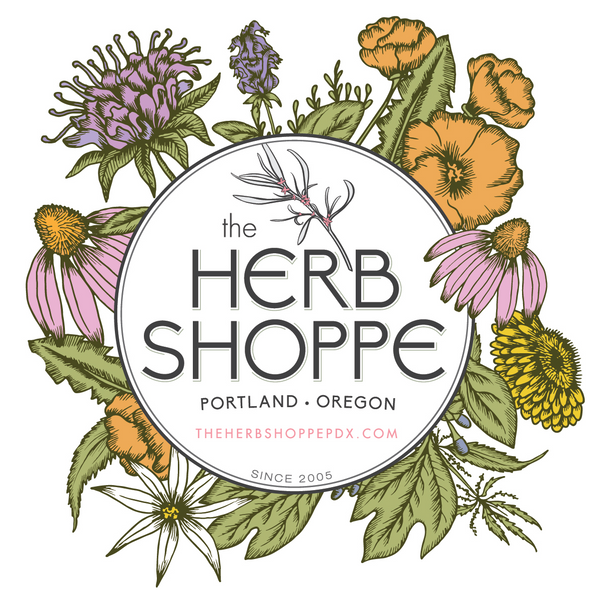As we focus on digestive health this November at The Herb Shoppe, we can shine a light on a medical plant that isn’t as well known as other popular herbs for supporting the gut. Many of us are familiar with chamomile, ginger, peppermint, licorice, and even slippery elm bark for soothing an upset symptom in your digestive system. But have you met psyllium husk before?
Plantago ovata, or psyllium husk, is extremely mucilaginous, and becomes viscous when its non-soluble and water-soluble particles come into contact with water. The plant is home to and produced mainly in India, but is also native to the larger Asia and Mediterranean regions. This herb belongs to the plantain family, and is shaped similar to common plantain you may have stumbled upon before. Psyllium husk grows short and shrubby, with stalky flowers that extend upward. Both the seeds and the husk of the stalk are used for herbal and modern medicine all over the world.
This plant is a really effective medicine for those who just can’t seem to have a normal poop. Commonly used by those experiencing constipation or trouble passing stool, psyllium husk is very rich in fiber, and when it comes into contact with water in the GI tract, it expands into a gel-type texture and helps stool to pass through the intestines easier. The function is very similarly to laxatives used today. In fact, there are some popular over-the-counter laxative brands today that contain psyllium husk in the formula! This plant can also be helpful for treating diarrhea by absorbing excess water in the intestines, as well as to soothe irritable bowel syndrome (IBS) discomfort, and hemorrhoids.In addition to our herb of the month being a great medicine for gastrointestinal symptoms, psyllium husk can also be used to address high cholesterol, regulate blood sugar, and assist in weight loss for folks who have diabetes.
Fortunately for this plant, there are a lot of western medical studies backed by scientific research in support of its profound effects! Hopefully, psyllium husk can continue to represent the very real effects of plant medicine in a world where western medicine takes hold. Maybe this plant can help to encourage a deeper and more respected understanding of other plant medicines that have been trusted and used for centuries.
You can find psyllium husk in our in-house Calm Bowels Tea.
References:
https://www.webmd.com/drugs/2/drug-56088/psyllium-husk-fibre-oral/details

